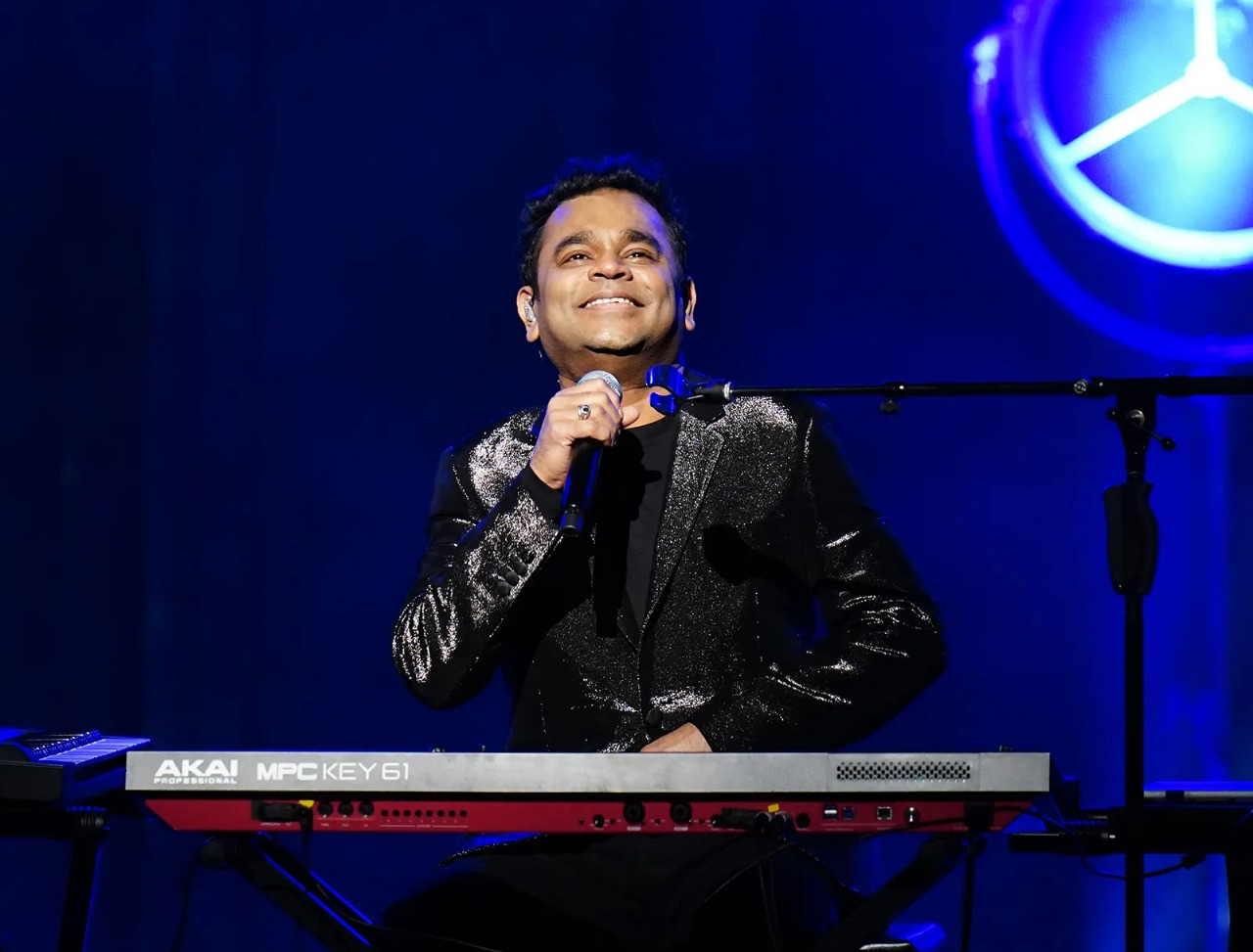
Follow WOWNEWS 24x7 on:

Oscar-winning composer AR Rahman has once again struck a chord with music lovers, this time not through a melody but through his reflections on the changing landscape of global music. In a recent interview ahead of the release of his upcoming film score for Ufff Yeh Siyappa, Rahman spoke about how the shrinking world—powered by digital platforms and cultural openness—is reshaping how artists connect, collaborate, and create. His comments offer a timely meditation on the role of music in a chaotic world and the growing appetite for authenticity, poetry, and emotional resonance.
Rahman, who has spent over three decades redefining Indian film music, emphasized that the globalisation of sound is not just a technical shift but a cultural awakening. He described how social media and streaming platforms have enabled him to discover and collaborate with artists across continents, from Turkish string musicians to dhol players in Pune.
Key Highlights From Rahman’s Reflections
- Rahman praised the openness of today’s musical landscape, where Indian notes can blend seamlessly with Turkish instruments
- He regularly discovers new artists via Spotify, iTunes, radio, and social media reels, often reaching out directly to collaborate
- The composer believes music should act as an antidote to societal chaos, not amplify it
- He expressed excitement about remakes of his songs, viewing them as a sign of continued relevance
- Rahman is currently scoring Ufff Yeh Siyappa, a dialogue-free film where music drives the entire narrative
Music As A Social Mirror
Rahman’s comments go beyond aesthetics. He sees music as a force that shapes society, warning that poor-quality music can degrade public sentiment while good lyrics and melodies can uplift and inspire. In his words, people are craving good music and poetry to come back—a sentiment echoed by many in an era dominated by algorithm-driven content.
He believes that music should counterbalance the noise of the world, offering clarity, emotion, and meaning. This philosophy is reflected in his approach to scoring Ufff Yeh Siyappa, a film that relies entirely on music to convey its story.
Ufff Yeh Siyappa: A Silent Film With A Loud Score
Rahman’s latest project is a bold experiment in narrative form. Ufff Yeh Siyappa, directed by G Ashok and produced by Luv Ranjan and Ankur Garg, is a dialogue-free Hindi film starring Sohum Shah, Nushrratt Bharuccha, and Nora Fatehi. The film is set for theatrical release on September 5 and features a diverse musical palette including Indian classical, orchestral, and jazz elements.
Rahman described the challenge of scoring a silent film as creatively invigorating. With no dialogue to compete with, the music becomes the primary storytelling device. He noted that in most films, music is often submerged beneath layers of dialogue, but here it takes center stage.
Digital Discovery And Artistic Curiosity
The composer’s creative process has evolved with technology. He now uses platforms like Instagram and Spotify to discover emerging talent, often initiating collaborations through direct messages. This openness to new voices and styles reflects his belief that the world is shrinking in the best possible way—allowing artists to transcend borders and genres.
Rahman’s recent collaborations include a Turkish string player, a classical vocalist from Lucknow, and a percussionist from Pune. These interactions, he says, are spontaneous and driven by curiosity rather than commercial intent.
Cultural Resonance: Music As A Unifier
Rahman’s perspective underscores music’s role as a cultural bridge. In a time of geopolitical tension and social fragmentation, he sees music as a unifying force that can foster empathy and understanding. His own career—from Roja to Slumdog Millionaire—has been a testament to this belief, blending Indian traditions with global sensibilities.
Final Note: A Shrinking World, A Growing Harmony
AR Rahman’s reflections remind us that music is not just entertainment—it is a living, breathing force that evolves with society. As the world becomes more interconnected, the possibilities for musical fusion and emotional storytelling expand. With artists like Rahman leading the way, the future of music looks not just borderless, but boundless.
Sources: Hindustan Times, PTI, News18





